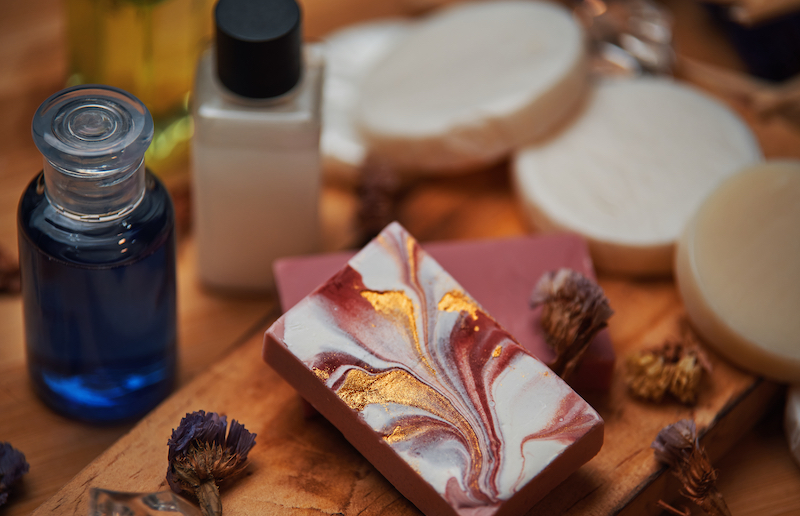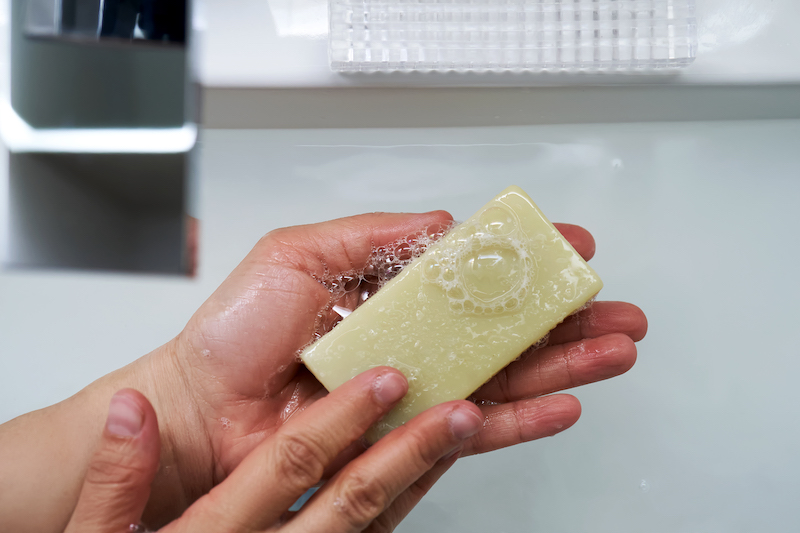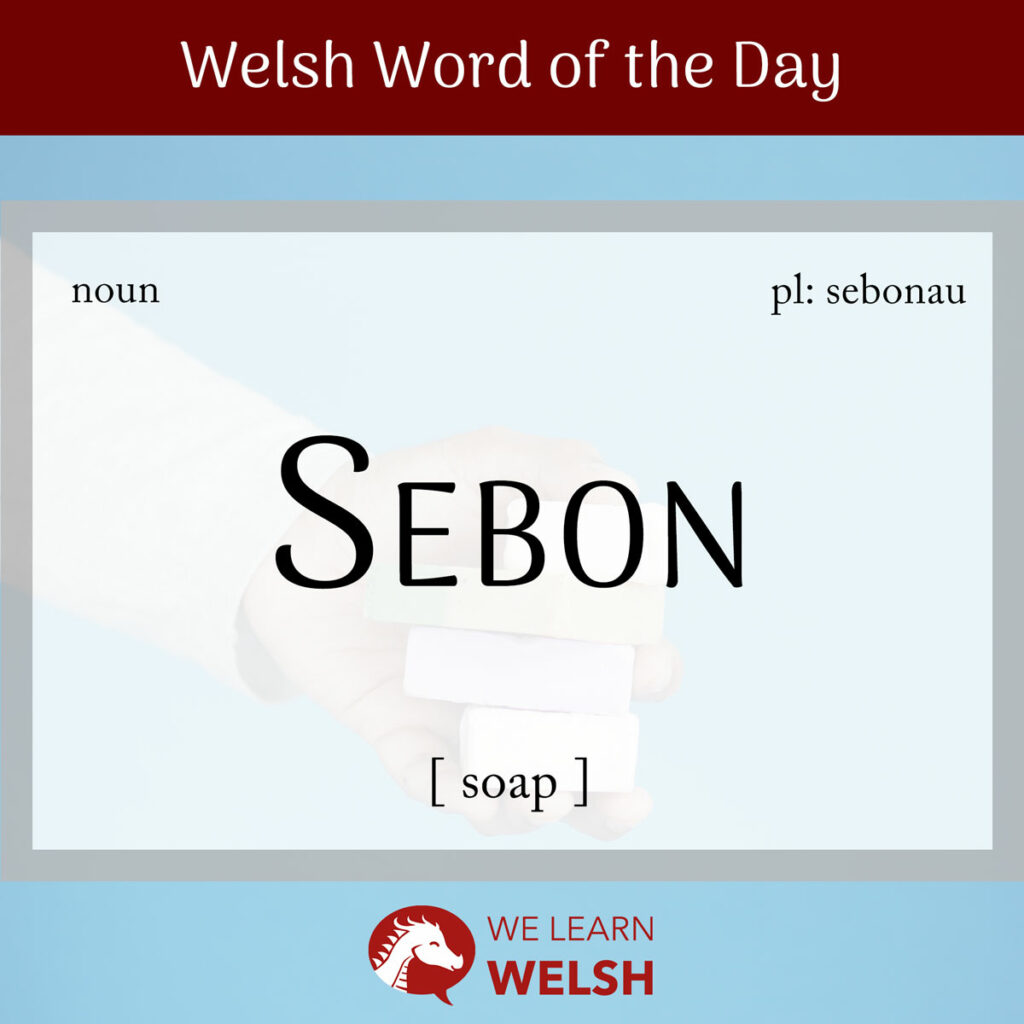Today’s word of the day is sebon, meaning soap. It’s a masculine noun, and the plural form is sebonau, or sometimes, though much more rarely, sebons. You’re more likely to need the plural of bar sebon (a bar of soap), though – which is barrau sebon.
sebon
soap
You might have noticed how similar sebon is to words in other languages, like the French savon, the Italian sapone, or the Hindi-Urdu saaban. This suggests it might, like these words, originally come from the Latin sapon, which referred to a kind of hair product.
Its origin isn’t entirely clear though – looking at other Welsh borrowings from Latin, we would expect sapon to turn into sawb or sobun in Welsh, instead of how it actually turned out as sebon.
The same word was also used historically in Welsh to refer to male genetic material, and this usage is attested since before its modern meaning as soap, adding another confusing piece to the puzzle. In short, it’s a bit of an etymological mystery!
Like many other Welsh words with an e as the vowel in the first syllable, sebon is pronounced slightly differently by some Southern Welsh speakers, like this:
But you’ll still hear the standard pronunciation in South Wales, too.
Although its own backstory is a bit confusing, sebon is the linguistic origin for a few other useful Welsh words, some of them quite scientific.
- sebondrwyth / trwyth sebon = soap suds
- seboni = to lather
- sebonaidd / sebonol = soapy / saponaceous
- sebonllyd = soapy, or figuratively, obsequious
- seboneiddiad = seponification
- sebonfaen = soapstone
Figuratively, sebon and its derived terms are often used in Welsh to describe flattery or cajolery. This is where sebonllyd’s second meaning comes from, and seboni and seboneiddio are both also sometimes used to mean to flatter or to suck up.
Like in English, the word sebon also refers to cheesy long-running TV dramas – sioe sebon (soap opera).
Mae angen i mi brynu mwy o sebon yr wythnos ‘ma.
I need to buy more soap this week.

We use sebonau for golchi (washing) and glanhau (cleaning) of all kinds. While most people prefer sebon meddal (soft soap) to golchi dwylo (wash hands), sebon golchi llestri (dish soap) / hylif golchi (washing up liquid) will be necessary for… you guessed it… golchi llestri (washing dishes).
Mae angen i mi fynd i’r archfarchnad i brynu hylif golchi a sebon.
I need to go to the supermarket to buy washing up liquid and soap.
And the different kinds of sebon don’t stop there! There’s sebon siafio (shaving soap), sebon llyfnu (conditioner, also called cyflyrydd gwallt), and even sebon persawrus / sebon sent (scented soap).
Golchi llestri is one of the first pieces of gwaith tŷ (housework) that most children are taught to do, since it’s more fun (at least compared to things like scrubbing toilets… ) because of the chwysigod sebon / swigod sebon (soap bubbles). However, these days, most people use hylif golchi llestri (washing up liquid) rather than sebon golchi llestri.
I remember arguing with my siblings over who would get to golchi llestri and who would have to do a less desired chore, like glanhau’r bwrdd (wiping the table) or hwfro (hoovering). I’m not sure I’d fight for the honour now! Maybe if we had a golchwr llestri (dishwasher)…
O, sori, dw i’n alergaidd i sebon persawrus.
Oh, sorry, I’m allergic to scented soap.
Sebon in its modern form came to Ewrop (Europe) fairly late compared to the rest of the world. People in prehistoric communities all over the world did make soap-like substances for cleaning out of olew (oil), lludw (ash), and braster (fat).
However, the kind of talpiau sebon (soapcakes) we’d recognise today was brought to Ewrop by traders from the Mediterranean Middle East, who had invented sebonau made of olew olewydd and mixed with persawr (perfume).
This was far more pleasant than what European peasants had been using up until that point, which was usually made of animal fat. Unfortunately, it remained a moeth (luxury item) for a long time.
Today, European, and indeed Welsh sebon, isn’t so bad, and in fact it’s become something of a traditional crefft (craft). You can buy handmade Welsh sebon with traditionally Welsh ingredients like lafant (lavender), gwymon (seaweed) or llaeth gafr (goat’s milk) from family businesses throughout the country, and perhaps even practise your Welsh while you order!


